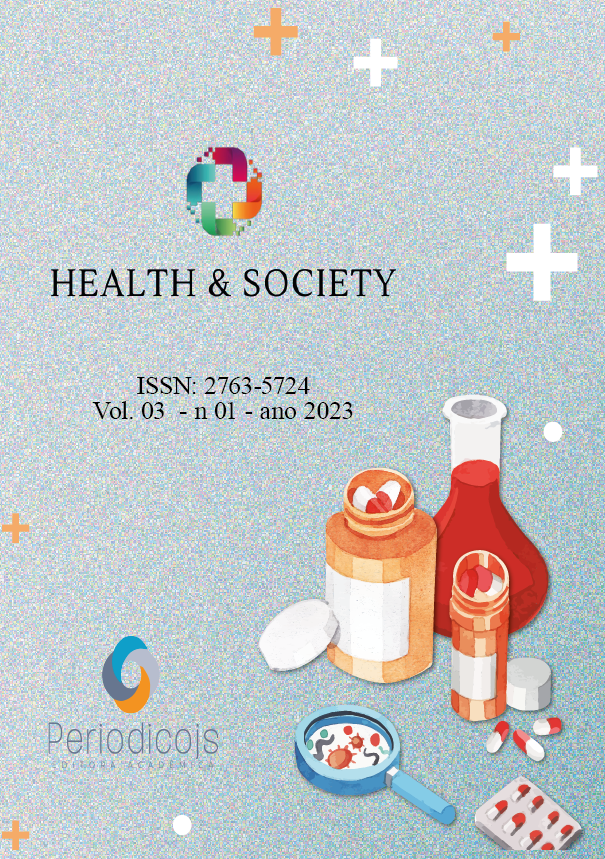Abstract
The most common infections in humans are caused by intestinal parasites. In Brazil, parasitic infections are a major public health problems. These infestation levels may be related to several factors such as climate, social and economic conditions and the characteristics of the parasites. In the Brazilian Amazon a few studies to determine the prevalence of intestinal parasitic infections such as amebiasis. Therefore, this study was conducted in order to examine the occurrence of amebiasis during the flood in Manaus. Amebiasis is the second leading cause of death by parasite worldwide. Among the environmental factors related to infection by Entamoeba histolytica, the variables income and possess significant source of water, suggesting that the high prevalence may be associated with poor economic conditions and sanitary living populations. The highest incidence of the parasite E. histolytica is related to the absence of regular hygiene habits such as simply washing hands before meals and after using the toilet. Furthermore, in order to health education of children and relatives can contribute to the acquisition of healthy habits avoiding generally parasitosis. We conclude that the prevalence of amoebiasis in this population, is allied to poor sanitation conditions and certain habits inappropriate constituting a worrying public health.
References
ALVES MS, VILELEA MAP, BARBOSA NR, ALVES RMS, REZENDE MC. Incidência de parasitoses em escolares da escola municipal de educação infantil “Sant Ana Itatiaia”, Juiz de Fora-MG e sua possível correlação com a qualidade da a qualidade da água para consumo. RBAC.1998; 30(4): 185-187.
AMARAPURKAR DN, Patel N Amarapurkar AD. Amoebic Liver Abscess. Journal of Hepatology. 2003; 39: 291-296.
BENETTON ML, GONÇALVES AV, MENEGHINI ME, SILVA EF, CARNEIRO M. Risk factors for infection by the Entamoeba histolytica/E. dispar complex: an epidemiological study conducted in outpatient clinics in the city of Manaus, Amazon Region, Brazil. Trans R Soc Trop Med Hyg. 2005; 99: 532-540.
CARVALHO OS, GUERRA HL, CAMPOS YR, CALDEIRA RL, MASSARA CL. Prevalência de helmintos intestinais em três mesorregiões do Estado de Minas Gerais. Rev Soc Bras Med Trop. 2002; 35(6):597-600.
CESA MV, DUARTE GM. A qualidade do ambiente e as doenças de veiculação hídrica. Geosul. 2010; 25(49) 63-78.
CIMERMAN S, CIMERMAN B. Parasitologia Humana e seus Fundamentos Gerais. 2. Ed. São Paulo: Atheneu, 2008.
COURA JR, WILLCOX HPF, ALBUQUERQUE BC, LORENZI AG, BARROSO DE, LALAMA EME, GONÇALVES EGR, GUERRA JAO, MARIN MAV, SÁ NETO RP. Aspectos epidemiológicos, sociais e sanitários em áreas do Médio Solimões. I. Estudo nas localidades de São Francisco do Laranjal, Aranaí e São Lázaro do Surubim, Município de Coari, Amazonas. Ana Acad Nac Med. 1993;153(3):122-6.
CUNHA AS, SILVA EF, RASO P, MELO SM. Patogenia da amebíase I. Aspectos clínicos da amebíase no Brasil com especial referência aos estudos realizados em 3 grupos populacionais de regiões geográficas distintas. Rev. Inst. Med. Trop. São Paulo. 1977; 19(2) 289.
DIAMOND L, CLARK CG. A redescription of Entamoeba histolytica Schaudinn, 1903 (emended Walker, 1911) separating it from Entamoeba dispar Brumpt. Journal of Eucaryotic Microbiology. 1993; 40:340-344.
GROSS R, SCHELL B, MOLINA MCB, LEÃO MAC, STRACK U. The impact of improvement over water supply and sanitation facilities on diarrhea and intestinal parasites: a Brazilian experience with children in two low-income urban communities. R. Saúde Públ. 1989; 23: 214-220.
HURTADO-GUERRERO AF, ALENCAR FH, HURTADO-GUERRERO JC. Ocorrência de enteroparasitas na população geronte de Nova Olinda do Norte – Amazonas, Brasil. Acta Amazon. 2005; 35(4) 487-490.
Manual Técnico de Análise de Água para Consumo Humano, Fundação Nacional de Saúde, Ministério da Saúde, Departamento de Saneamento, Brasília. 1999; 9 - 12;
MENEZES, ALITA. O Perigo Submerso das Doenças Hídricas. Jornal Em Tempo. Manaus- Amazonas. Pág. E1, de 3.6.2012.
NEVES DP. Parasitologia Humana. 10 ed. São Paulo: Atheneu; 2000.
NEVES DP. Parasitologia humana. 11. ed. São Paulo, SP: Atheneu; 2005.
NOZAKI T, ACA IS, OKUZAWA E, MAGALHÃES M, TATENO S, TAKEUCHI. Zymodemes of Entamoeba histolytica, isolated in Amazon and the Northeast Regions of Brazil. Trans. R. Soc. Trop. Med. Hyg., London. 1990; 84(3) 387-388.
REEVES RE. Metabolism of Entamoeba histolytica Schaudinn. Adv Parasitol. 1984; 23:42-105.
REY L. Bases da Parasitologia Médica. 3. Ed. Rio de Janeiro: Guanabara Koogan; 2010.
SILVA EF, GOMES MA, MARTINEZ AMB. Entamoeba histolytica: Axenization and characterization of isolated samples from symptomatic and asymptomatic patients from different regions of Brazil. Arch. Med. Res.1997; 28: 288-289.
SILVA MCM, MONTEIRO CSP, ARAÚJO BAV, SILVA JV; PÓVOA MM. Determinação da infecção por Entamoeba histolytica em residentes da área metropolitana de Belém, Pará, Brasil, utilizando ensaio imunoenzimático (ELISA) para detecção de antígenos. Cad. Saúde Pública, Rio de Janeiro. 2005; 21(3): 969-973.
SILVA JUNIOR EA. Manual de Controle Higiênico – Sanitário em serviços de alimentação. São Paulo: Livraria Varela; 2008.
SZABÓ JÚNIOR AM. Educação Ambiental e Gestão de Resíduos. 3ª. Ed. São Paulo: Rideel; 2010.
VELÁQUEZ C, SHIBAYAMA-ASLAS M, AGIRRE-GARCIÁ J, TSUTSUMI V, CALDERON J. Role of neutrophils in innate resistance to Entamoeba histolytica liver infection in mice. Parasite Immunology. 1998; 20(6): 255-262.

This work is licensed under a Creative Commons Attribution 4.0 International License.
Copyright (c) 2023 Roberto Mattos da Silva Júnior , Jânio Silva Silveira





